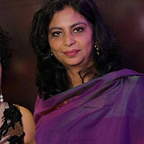What I’ve Learnt in my Twenty-Five Years as an Educator in Fashion
I consider myself fortunate to have been provided the space in fashion education to explore myself as an educator. This, even though fashion education has always occupied a dubious space in the education ecosystem. We love the idea of creativity and if it’s associated with the promise of glamour even better! It’s no surprise that the demand for fashion education is high amongst students who are seeking careers that can be built on the promise of their creativity. A creative education is fun and if it can lead to fame, recognition and social standing- as the popular narrative around fashion design goes- it’s the best thing ever to the teenage mind! But fashion isn’t considered a worthy area of study…that it is a discipline like any other is a politically correct thing to say, but not something that educational executives, administrators, academicians of other disciplines and even larger society actually believe.
My own parents did not see any worth in me pursuing a fashion design education as a teen and then to add to their disappointment was my decision to leave my fashion business and pursue my passion for teaching. They weren’t alone. My husband and in-laws too wondered what I got out of teaching given that what I earned as a teacher was less than what the office peon earned. (My husband would often joke and tell me, “yours is a riches-to-rags story!”). Still more baffling was the fact that for a major part of my career, I chose never to be attached to a single school as a full-time teacher, but remain a visiting faculty. I was completely dispensable- given that teachers in Fashion Design are a dime-a-dozen! I wasn’t protected by any contract, had no security blanket in terms of pensions or gratuity. My appointment could be terminated at a day’s notice. However, I have taught in institutions for twenty-five years and this is a testimony not just to the nobility of the leadership in different schools, but also in part to the passion I brought into my classes.
My family often brought up the issue of the compensations that the schools offered. “All these years of teaching, and you hardly have anything to show for it!” When I would hesitatingly add, “that I have gained experience…,” they would ask,” What is your experience worth?” I still don’t have an answer to that question, but what I do know is that my experiences showed me values that were greater than money- Integrity, self-belief, openness, service, empowerment and inner transformation.
This “inner transformation” is everything. It is the north star of education. While the education system is designed to serve as a pipeline that produces a “good employee” out of the raw material of the learner’s mind, as an educator I saw myself fractured from that purpose. Even though I worked within the system, my classrooms were never rooms where content was taught, or where ‘industry experts’ were invited to share their story, but an intimate space between my students and me where their instincts were identified and nurtured. To find your voice, to hone it and to trust it- is the real power of education.
Fashion education, by its very nature, helps a student cultivate her creative voice. It demands that the student deploys her entire being to her work- her imagination, her experiences, her art, her intuition, her knowledge, her skills and her beliefs. The work of fashion design students is expressive and as such it must be expressed in multiple formats- drawings, clothes, make-up, gesture and style, photography, videography, storytelling, craft and written expressions. Innovation in fashion therefore, is not an end to be achieved, but the very means to expressing the new.
Now creative disciplines like design are talking about innovation, disruption and future-proofing. However, the paradigm they follow is the same- education for employment. How can any system change or improve if the paradigms that put it to work don’t change? The real purpose of education is to develop self-aware individuals who are informed, aware of their own values and know how to appraise the influx of information and influences from the external environment based on a strong framework of values; and most importantly, critically assess and re-imagine the work that they do. Employability or work-readiness will be a natural outcome of this transformation and not a primary objective of education. Education has transformative power. To caricature it in terms of buzzwords, or to confuse outcomes with objectives, is to deprive it of its real power.
Some of the things I have learned over the last twenty-five years:
1. The student-teacher relationship is unlike any other. When it is healthy and mutually respectful, it brings about intellectual, emotional and spiritual growth. Creative education fosters this relationship and growth.
2. An education doesn’t require expertise as much as it requires receptiveness and empathy. The student and the teacher must equally and consistently seek to understand each other, inspire each other and persevere to learn.
3. Knowledge is not a badge you wear. It’s not meant to make you stand out as special or entitle you to greater privileges. If your knowledge becomes a barrier in your relationship with others, if it no longer responds to life, or worse still becomes ideological, it needs to be replaced by fresh knowledge. Education must develop learners, not ‘know-it-alls’.
4. Education is a life-long pursuit, not a 15/ 18-year study program. When it is correctly imbibed, it prepares you for all sorts of relationships. You recognise that knowledge can come from anywhere, provided you’re tuned in to receive it. Also, a readiness to learn is at the heart of all healthy relationships- personal or professional.
5. The most significant outcome of education is humility- the capacity for listening, considering, acknowledging and embracing points of view other than your own.
